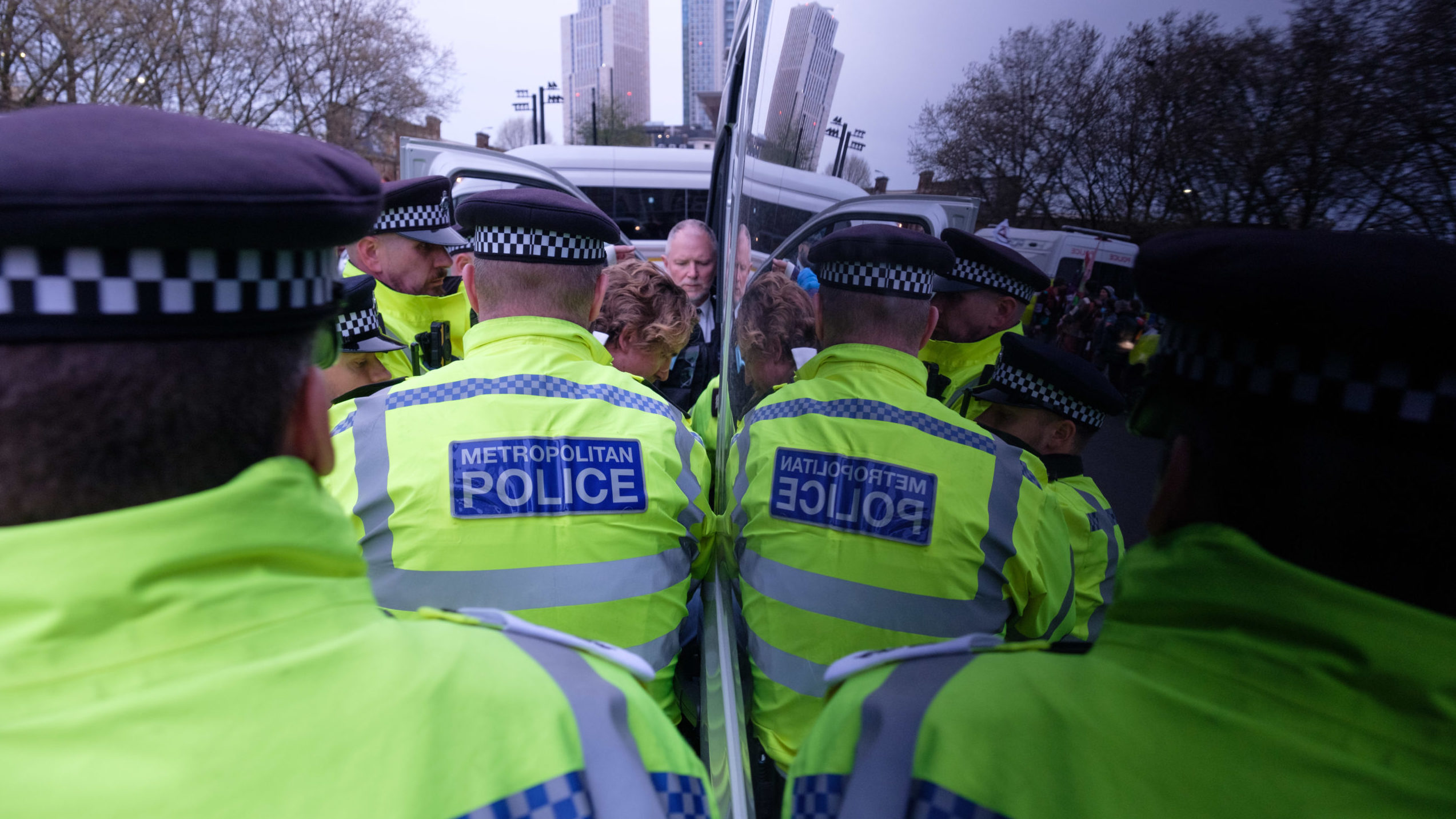A bridge on the M25 seems an unlikely place to reignite the debate on press freedom in the UK. Yet last November, it was here that Charlotte Lynch, a journalist from LBC, was arrested by Hertfordshire Police on suspicion of conspiracy to commit a public nuisance for reporting on the Just Stop Oil protests. Ignoring the obvious signs of her job, including her press card, she was detained for five hours at a police station along with two other journalists. Their equipment – another clear indication of their line of work – was seized.
Far from an isolated incident, the arrests of journalists have taken place in tandem with the rise in protests in recent years. Back in August, Peter Macdiarmaid was also detained and taken in a police van to Redhill police station. The award-winning reporter, who has covered several historic and monumental events from the Arab Spring to the London riots, remarked: “It’s the first time I’ve been in cuffs in the 35 years I have covered protests”.
Former Daily Mirror correspondent Matthew Dresch faced a similar fate in Bristol the previous year, sharing footage of what he claimed was assault by police officers as he reported on protests in the city, despite the fact that he was just “respectfully observing what was happening”.
Your support changes lives. Find out how you can help us help more people by signing up for a subscription
Every time, a predictable chorus of concerns follows. The public rightly express outrage, countered by defensiveness and hollow affirmations from police and the government about the importance of a free press to UK democracy. But nothing changes. Rather than lessons being learnt, the government is committed to doubling-down on restrictions on protest, putting increasingly broad powers in the hands of the police which would make the arrest of journalists and other members of the press even easier.
The Public Order Bill – a grim sequel to last year’s oppressive Police, Crime, Sentencing and Courts Act – would arm the police with a slew of new powers. The new offences of “locking on”, being “equipped” to lock on, and expanded stop-and-search powers are so broad they have the potential to capture an enormous range of ordinary peaceful behaviour. Overnight, simple acts, such as walking arm-in-arm down the street, taking a bike lock to work, or tying up your dog outside a café, could place the public at risk of arrest, prosecution, and imprisonment.









